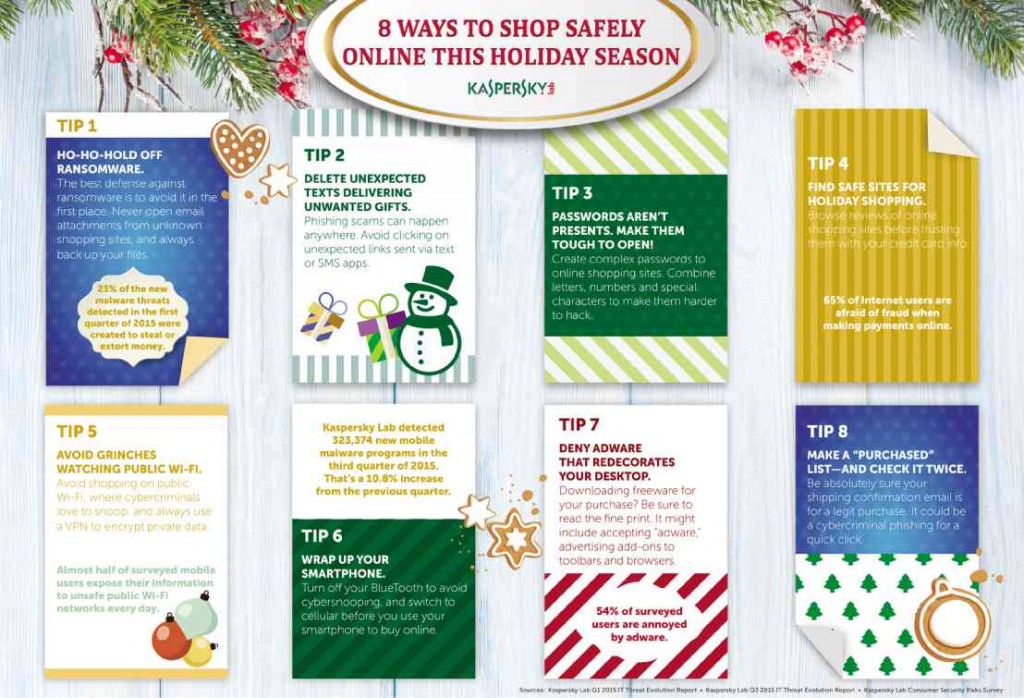Steer clear of online scams
As the Christmas rush and Manila’s traffic convince more Filipinos that it is better to shop online than head to the crowded malls, Kaspersky Lab shares eight simple tips to avoid getting suckered by online scams this holiday season.
Kaspersky Lab says that it is during this time of heightened shopping activity that cyber criminals step up their game and bring out their inner Grinch.
With all the great online deals out there, it is almost impossible to avoid clicking and taking a look around without question.
These criminals hope that you’ve let your guard down and won’t be doing your regular due diligence when clicking links or visiting websites.
So how can you stay safe shopping online? Here are eight tips from Kaspersky Lab:
Article continues after this advertisement- Ho-ho-hold off ransomware.
The best defense against ransomware is to avoid it in the first place.
Article continues after this advertisementNever open email attachments from unknown shopping sites, and always back-up your files. 23 percent of new malware threats detected by Kaspersky Lab in the first quarter of 2015 were created to steal or extort money.
- Delete unexpected texts/emails delivering unwanted gifts.
Phishing scams can happen anywhere. Avoid clicking on unexpected links sent via email, SMS, or messengers.
- Passwords are not gifts.
Make them tough to open. Create complex passwords to online shopping sites. Combine letters, number and special characters to make them harder to hack.
- Find safe sites for holiday shopping.
Browse reviews of online shopping sites before trusting online shopping sites with your credit card info.
Kaspersky Lab’s survey showed 65 percent of users are afraid of fraud when making payments online.
- Avoid Grinches watching public Wi-Fi.
Avoid shopping on public Wi-Fi where cyber criminals love to snoop for your credentials in unsecure wireless networks.
Another study conducted by Kaspersky Lab also showed almost half of surveyed mobile users expose their information to unsafe public Wi-Fi every day.
- Wrap up your smartphone.
Turn off your Bluetooth to avoid cyber snooping and connect via cellular before you use your cellphone to shop online. These simple steps will make your smartphone connection much more secure.
Kaspersky Lab detected 323,374 new mobile malware programs in the third quarter of 2015. That is a 10.8-percent increase from the previous quarter.
- Deny adware that redecorates your desktop.
Downloading freeware for your purchase? Be sure to read the fine print. It might include accepting ’adware’ advertising add-ons to toolbars and browsers.
Another Kaspersky Lab survey also showed 54 percent of Internet users are annoyed by adware.
- Make a ’purchased list’ and check it twice.
Be absolutely sure your shipping confirmation is for legit purchase. It could be a cybercriminal phishing for a quick click.
While these tips can help, it is up to you to make sure that you are going to the right sites.
Remember, if a deal is too good to be true, it probably is.
